Porsche is a prestigious automobile brand that specializes in high-performance sports cars, SUVs, and sedans & has a strong social media presence. Do you want to know how Porsche became so successful in the automotive industry? The reason for this is due to the company’s marketing strategy.
Marketing is one of the most important functions of a business that engages in promotion and marketing activities such as market research and advertising for products or services; especially in today’s context where marketing innovation has accelerated exponentially and adoption of these techniques can be a make or break factor for the companies.
In this case study, we will learn about Porsche Marketing Strategy, along with its marketing mix, marketing strategy, competitors, campaigns, and, most importantly, SWOT analysis of Porsche. Let’s get started!
About Porsche

Porsche is a German automotive manufacturer known for producing high-performance sports cars, SUVs, and sedans. In 1931, Ferdinand Porsche founded the company. The company’s headquarters is in Zuffenhausen, a district of Stuttgart, Germany. Volkswagen AG owns the company, with Porsche Automobil Holding SE owning a controlling stake.
Porsche is best known for its powerful, agile sports cars, most notably the iconic 911. Porsche AG owns 29% of Bertrandt AG, a German engineering and design consultancy, and 81.8% of Mieschke Hofmann und Partner.

It is still cutting-edge in terms of performance and technology. Its primary goal is to achieve value-generating growth. Every car fan’s subconscious is imprinted with the Porsche slogan “there is no substitute.” We’ve all heard that if you say something often enough, people will believe it, and this is exactly what’s happening.
Now that we’ve covered the fundamentals of the company, let’s take a look at Porsche’s marketing mix in the following section.
Porsche Marketing Mix
The marketing mix refers to the various areas of emphasis through which a company promotes its brand or product in the market and they are Product, Price, Promotion, and Place.
So, in the following sections, we will look at Porsche’s marketing mix strategy.
1. Product Strategy
Porsche is a well-known company that sells luxury automobiles all over the world. The best luxury cars have technology that is advanced enough to make the passengers feel as if they are in a high-tech hotel suite rather than a car. The 718 Boxster/Cayman, 911, Panamera, Macan, Cayenne, and Taycan are currently available from Porsche.

The company has expanded its product lineup with vehicles such as an SUV and sedan, as well as the introduction of new sports cars. Porsche luxury cars are appealing because of their touch screen, Bluetooth connection, and 3-D sound system. When customers purchase a Porsche, they meet their expectations.
2. Price Strategy
Pricing of Porsche ranges from approximately INR.69,98,000 to INR.3,07,83,000. The prices of these automobiles begin at Rs 69.98 lakh for the most affordable model, the Macan, and Rs 1.64 crore for the most expensive model, the 911.
When the Porsche Panamera S first hit the market, it was priced around $133,000. However, in order to increase sales, the price was reduced to $120,000 over time. Porsche has been using this technique for quite some time. This is known as price skimming, where you introduce your product at a high price. However, as time passes, the company lowers the prices of its products in order to increase sales.
Price skimming is a pricing strategy in which the producer sets a high introductory price to attract buyers who have a strong desire for the product and the resources to purchase it, and then gradually lowers the price to attract buyers in the subsequent layers of the market.
They also used a psychological pricing strategy, keeping 2-3 dollars less than the total figure. The best part is that if Porsche swaps the prices, there will be little or no change in demand because they have exclusive cars that not everyone can afford. As a result, we can conclude that Porsche does not follow competitor-based pricing.
3. Place Strategy
Porsche has a very simple distribution channel, which gives it a competitive advantage. Zuffenhausen is Porsche’s heart, the place where it all started. Porsche’s second home is in Leipzig, where the customer centre welcomes 40,000 visitors per year.
Although Porsche’s origins are in Germany, the fascination with sports cars can be found all over the world. It sells its products all over the world, with the top three countries being China (88,968), United States (57,294), and Germany (26,152).
China is the biggest market for Cayenne and Panamera models. Porsche was also able to maintain its growth in all of the major markets.
4. Promotion Strategy
During the 2011 earthquake in Japan, Porsche donated $2.5 million in aid. This improved the brand’s image while also allowing it to promote its business by having a better reputation.

It advertises on television and other forms of media. They also do offline promotion through magazines, billboards, and other means. As a result, they employ both above-the-line and below-the-line marketing strategies.
Now that we’ve figured out Porsche’s marketing mix, let’s take a look at its marketing strategy.
Porsche Marketing Strategy
Through its marketing strategies, Porsche has set the difficult goal of attracting a younger and more female audience. It aided the company is repositioning its brand without alienating its core customers. Porsche is a successful example of how to effectively segment their target market area and achieve the best marketing results.
Let’s take a look at Porsche’s targeting and digital marketing strategy below.
1. Targeting Strategy of Porsche
Porsche caters to privileged and upscale clients. College graduates with a household income of more than $100,000 are among the target audiences, with 85% being males and 15% being females. Its targeted marketing efforts are aimed at increasing the number of female Porsche owners and decreasing the average age of Porsche owners.
Porsche hired tennis player Maria Sharapova as a brand ambassador in 2013 in order to reach out to young female audiences. As a result, the percentage of female buyers who purchased the Cayenne SUV and Panamera increased from 8% to 15%.

Its successful marketing strategy has increased demand and strengthened the fan base.
2. Porsche Digital Marketing Strategy
Social media is the foundation of the company’s digital strategy. It is incorporating social media thinking into its digital marketing to create a strategy that will benefit the company while also interacting socially with customers.
Let’s take a look at the brand’s social media accounts:
- Facebook Account

- Instagram Profile

- Twitter Profile

The company’s millions of followers are regularly updated with aesthetically pleasing car photos, blog articles about car technology, and related articles. It desires that its customers have the best possible experience.
Now let’s take a look at Porsche’s advertising campaign strategy and see how they caved a massive market.
Porsche Advertising Campaign
An advertising strategy is a strategy incorporated for reaching out to and persuading customers to purchase a product or service. It includes campaigns that result in the potential success of the brand.
Let’s take a look at the success Porsche campaign brought them.
- “Timeless Machine” Campaign
Cramer-Krasselt was the creator of a new multimedia campaign for Porsche’s new model, the 911. It created the 30-second spot “Pop Star,” which is fast-paced and whimsical. It is part of the larger “Timeless Machine” campaign, which honors the model’s impact on pop culture over the last 55 years.
Inspired by those fan creations and the culture surrounding Porsche, “Pop Star” depicted the 911 traveling across the screen, transforming into the various objects it has appeared on or as over the years, including a lamp, puzzle, paper clip, Legos, and more.

The voiceover states, “The world’s never gotten enough of it. So, we proudly bring you more of it. The new 911: Timeless Machine.”
- “The Power of Balance” Campaign
To promote the launch of its Cayman model, the brand created a digital campaign “ a series of computer games “ called “The Power of Balance.”
“Advanced engineering. Driving ambition. A perfect fusion of man and machine brought together in true Porsche spirit. This is what makes the new Cayman unique. This is the Power of Balance.” This strong model statement and campaign is exactly what enticed the target audience to interact with the brand and play the game.

These types of campaigns arouse people’s competitive nature, especially if there is a chance to earn a top score on a leader board somewhere or a prize to drive a sports car around a race track. The graphics were really sleek, and the overall concept definitely communicates to the consumer the “balance” message of this Porsche model.
Their advertising strategy game is going really strong. Now let’s see who are their competitors and what do they have for Porsche.
Porsche Competitors Analysis
A competitive analysis is a strategy in which major competitors are identified and their products, sales, and marketing strategies are researched. It can assist you in learning the intricacies of your competition’s operations and identifying potential opportunities which allows you to develop solid business strategies that outperform those of your competitors.
- Ferrari:

Like Porsche, the primary focus of Ferrari is also sports cars. By focusing on the sports car segment, Ferrari competes directly with Porsche. For example, the Porsche 911 competes directly with Ferrari Enzo.
Both of them produce awesome cars but Ferrari tends to be more expensive than Porsche. For example, Ferrari FXX and Ferrari Enzo cost more than $500,000 and Porsche offers mid-to-low $100,000 cars like Porsche 911 Turbo.
- Lamborghini:
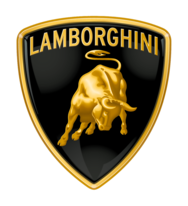
Lamborghini’s primary focus is also on sports cars. It is an Italian luxury sports car brand and manufacturer. Porsche and Lamborghini are now part of the Volkswagen Group. Lamborghini is more expensive than Porsche in terms of price, and it is also more luxurious.
For example, the Porsche 911 competes with the Lamborghini Murcielago, but the Lamborghini model is much more expensive than the Porsche, which can offer an equal performing car for between $130,000 and $250,000.
- Bugatti:
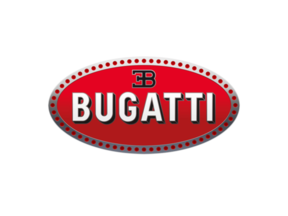
Automobiles Ettore Bugatti was a French high-performance automobile manufacturer founded in 1909. Bugatti manufactures high-performance racing cars that are noticeably focused on design and competes directly with Porsche.
Porsche and Bugatti are both now part of the Volkswagen group and are internal competitors. Talking about the price tag, Bugatti is generally much more expensive than Porsche.
- Aston Martin:

Aston Martin Lagonda Limited is a British luxury sports car producer. It combines three essential elements: power, beauty, and soul. It competes directly with Porsche because it also focuses primarily on sports cars while Aston Martin focuses on luxury sports cars, Porsche focuses on performance sports cars. Aston Martin is generally more expensive than Porsche due to its more luxurious features.
Internal Analysis
An internal analysis examines your company’s internal environment to assess its resources, competencies, and competitive advantages. It allows you to identify your organization’s strengths and weaknesses. So let’s look at Porsche’s internal analysis down below.
- Resources :
Porsche’s resources are vehicles. The vehicles are sold to customers by the company. Porsche offers engineering and consultation on engine and vehicle design in addition to vehicles.
- Tangible Resources :
Physical resources, financial resources, and the R&D team are one of their major tangible resources. These resources help them with each and every product they produce.
- Intangible Resources :
Porsche’s intangible resources include engineering and consultation on engine and vehicle design. Intangible resources provide a significant portion of income. Their expertise is yet another valuable intangible resource for them.
- Capabilities :
Porsche has strong engineering and consulting service capabilities, as well as a strong manufacturing factory in Germany, which is one of their main capabilities for continuing their business. Their manufacturing facility is the best in the world. Their R&D Team is their other primary capability.
- Core Competencies :
Porsche’s reliability is one of its most effective core competencies. Because of their engineering and consultation on engine and vehicle design, Porsche has managed to be one of the most dependable premium brands.
Now that we’ve analyzed the competitors and internal analysis, let us look at the SWOT analysis of Porsche and better understand the brand’s strengths, weaknesses, threats, and opportunities.
With excellent marketing activities, brand strategy, competitors and internal analysis, the brand compete with established brand companies such as Ferrari and Lamborghini, and with this, we have concluded the case study. Now let us summarize it in the conclusion section.
Conclusion
So Porsche is an example of an iconic brand that has the amazing ability to reinvent itself and expand into new markets. It is a meaningful brand that stays true to its roots. Its strategy of targeting consumers via social media and successful strategies makes it more lively and likely to gain customer’s trust.
Porsche, with its numerous awards for quality, style, and engineering, also has sophisticated marketing that makes it easy to understand why it is the world’s most profitable automotive brand.
Did you enjoy our work? Do you want to learn more? To gain hands-on experience with digital marketing, attend our Free Masterclass with Karan Shah, CEO of IIDE. Also, for more information on other courses, please visit our website iide@.co.
We appreciate you reading the blog and devoting some of your valuable time to it. We hope you found this blog informative and helpful.
So, if you enjoyed the article, please share it with your friends, colleagues, and family; if you found it interesting and valuable, please leave a comment to let us know what you think.

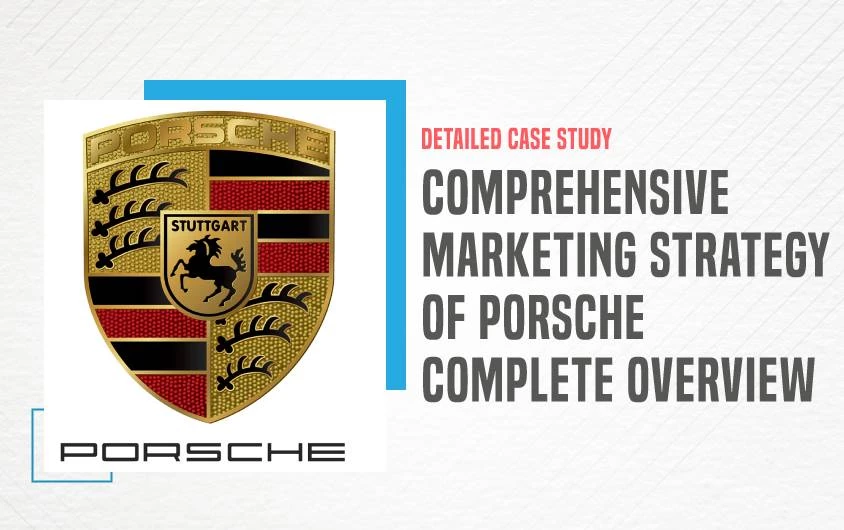


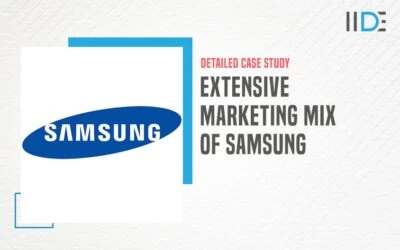
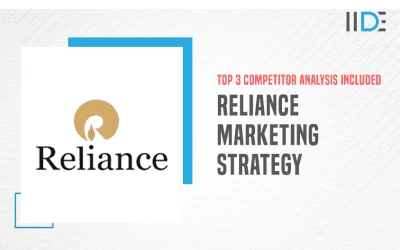
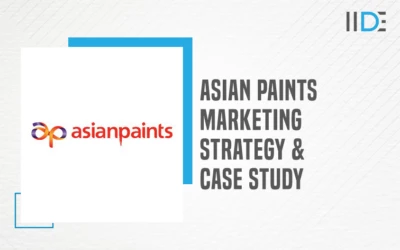
Porsche marketing strategy that you have shared is really amazing and informative. Subscribed your blog.
The marketing strategy of every company is different and unique. The information that you have shared is something new to read today.